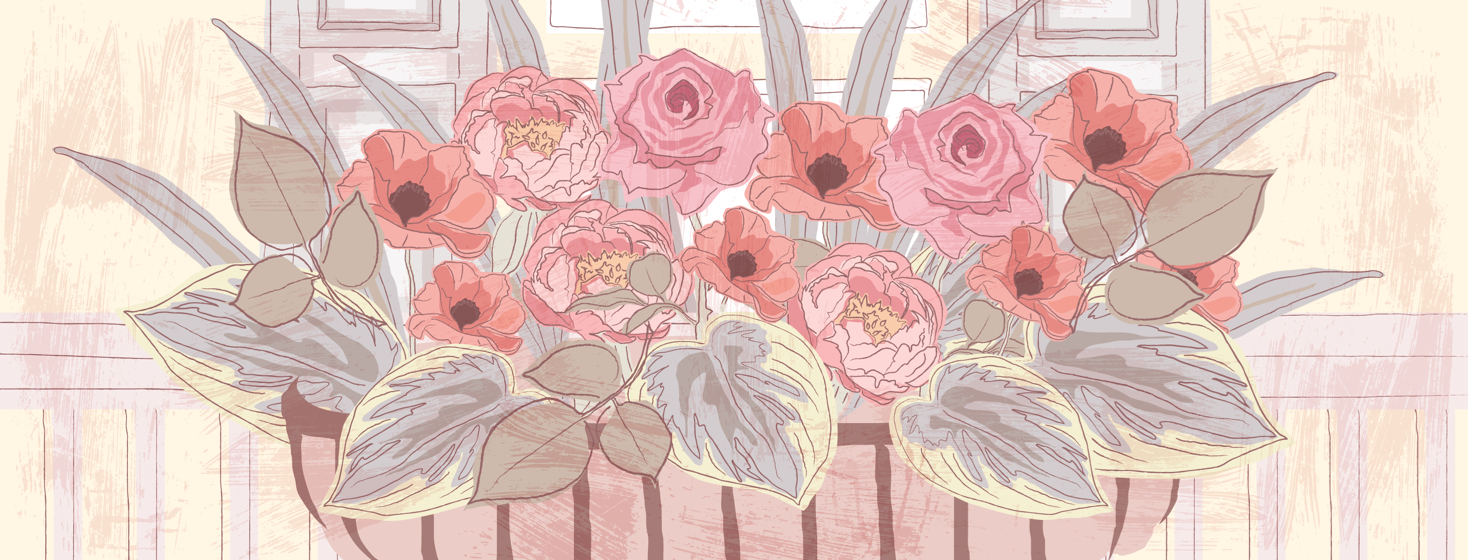Asthma-Friendly Gardening
Summer is officially here, even though it is still pretty cool here in northern California. I’m enjoying one of my favorite places, my small deck off of my bedroom on the second floor of the small cottage I have been renting in the hills for 2 ½ years. I have a small herb garden with different types of thyme, basil, rosemary, and parsley. There are assorted succulents and flowering plants that surround comfy chairs and a small dining table. I start my day with a cup of coffee and end it with a drink or knitting on the deck.
Before spending time in my garden I always check the pollen count here. No matter how much I love my deck and garden, taking care of my lungs is always my first priority. I stay inside as much as possible during pollen season. But gardening with asthma is doable, as long as you take some precautions.
Here a few tips to enjoy gardening with asthma:
1. Choose asthma-friendly plants
How do you know if your plants are asthma-friendly? Check out the OPALS™ (Ogren Plant Allergy Scale) rating system. This scale ranks common indoor and outdoor plants as either high-allergy or low-allergy. Select pollen-free or low allergy landscaping plants to reduce allergens.
2. Male plants produce pollen, so choose female plants
Some of my favorite no-pollen, allergy-free plants include cactus, peony (my all-time favorite flower!), forget-me-nots, hyacinth, poppy, and rose (low scent variety) and sweet pea. My favorite shrubs include hostas, big leaf hydrangeas, and coral bells.
A few plants and shrubs that release pollen into the air, have a strong scent or can cause allergy symptoms should be avoided, including daisy, chrysanthemum, chamomile, jasmine vine, and wisteria.
3. Avoid chemical weed killers
There are lots of blog posts and news articles that say mixing water, salt, and dish soap makes a non-toxic, earth-friendly weed killer. This solution (1 gallon of water, 1 cup of salt, 1 tablespoon of dish soap) sprayed on weeds in the sunshine will work on small weeds. Heartier weeds will need a horticultural version of this mixture which contains additional vinegar. This solution strength will kill all of the healthy plants around the weeds as well, so spray carefully. Unfortunately, the best and safest way to get rid of weeds is the old fashioned way, pulling them.
4. Avoid mold in the garden
Mulch can contain toxic mold spores, so using rocks or cement pavers will reduce mold. Water in the early morning to give your plants a chance to dry out during the day. Always use gloves and a mask when working with mulch.
5. Plant mosquito repelling plants
Citronella plants, candles, and torches are great for repelling mosquitoes, but the overpowering scent is an asthma trigger. Instead, if the strong fragrance doesn’t bother you, plant rosemary, garlic, and basil, all are known to repel mosquitos and other bugs. Rub basil leaves together in your hands and rub on mosquito bites to relieve itching. Geraniums and marigolds will also do the trick.
6. Don’t bring the outdoors inside
If possible, have designated shoes and clothes to wear while gardening. Take your shoes off and leave them outside. Remove your clothes right away and place directly in the laundry basket, or even in a garbage bag to keep the pollen and soil contained. Take a shower immediately.
As always, remember to have your rescue inhaler with you when working in the garden.
Gardening is good for you
Gardening can relieve stress, keep you limber, and improve your mood. You can grow healthy food or beautiful plants. By taking a few steps to protect your lungs, you too can enjoy the benefits of gardening (and, yes, gardening with asthma).
Do you garden? Share your tips and feedback in the comments section below.

Join the conversation